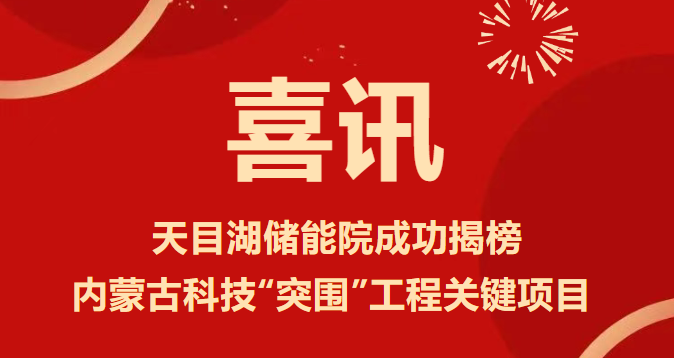Recently, Tianmuhu Advanced Energy Storage Technology Research Institute Co., Ltd. and the Chinese Academy of Sciences Institute of Physics team independently developed a lithium battery that can be used at minus 100 degrees Celsius, breaking through the current low temperature limitations of lithium batteries.

Positive electrode, negative electrode, electrolyte and diaphragm are the basic components of lithium batteries. Research shows that the electrolyte is a key part of the lithium battery to work normally in a low temperature environment. Traditional lithium batteries use a carbonate electrolyte, and the battery's performance at minus 20 degrees Celsius is only about 60% of its optimal level. Therefore, electric vehicles, electric bicycles and other electric tools on the market are difficult to operate normally at low temperatures. In this context, making lithium batteries work normally at low temperatures is the focus of researchers for a long time.
In May 2021, Tianmuhu Advanced Energy Storage Technology Research Institute began to research and development of ultra-low temperature lithium batteries in order to meet customer needs. In order to solve the difficult problem that the low temperature environment will reduce the activity of lithium ions, the researchers conducted a series of explorations, and finally, by introducing a new electrolyte solvent, so that it can form a eutectic with the original carbonate solvent, successfully developed a lithium battery that can be used at minus 100 degrees Celsius.

Gai Jianli, senior manager of the electrolyte laboratory of the institute, said that previously, the lowest temperature recorded or reported in the literature that lithium batteries can work is minus 70 degrees Celsius, but the discharge is very weak. The low-temperature lithium battery developed this time can still reach 60% of the normal temperature discharge at minus 100 degrees Celsius, which has made a major breakthrough, which will have a far-reaching impact on the development of scientific research, deep space, deep sea and other special fields
For how to further break through the low temperature limitations of lithium batteries, Gai Jianli's goal is clear, she said: "In addition to overcoming the problem of electrolyte, next, we will also upgrade the positive and negative electrodes and diaphragm materials of the battery."
The successful research and development of ultra-low temperature batteries also shows the strong research and development strength of Tianmuhu Advanced Energy Storage Technology Research Institute. Since its establishment in 2017, the institute has focused on the long-term goals and major needs of the country, carried out strategic, forward-looking and basic research on key core technologies, and promoted the transfer and transformation of scientific and technological achievements. At present, the Institute has been in the international leading level in the field of technology research and development of solid-state batteries, sodium-ion batteries, nano-silicon anode materials, and has led and participated in a number of national and provincial key research and development projects in the field of energy storage, forming a full-chain development model from forward-looking technology development, high-level testing and characterization, failure analysis, simulation and simulation to industrial incubation. Serving more than 400 domestic and foreign industry customers.

The picture shows the comparison of low temperature capacity retention rates of low temperature batteries reported publicly.
It is reported that the technology by Gai Jianli, Yang Jirong, Yang Wei, Li Quan, Wu Xiaodong, Li Hong co-authored the "Lithium lon Batteries Operated at 100℃" paper, and published in the Chinese Physical Society founded the English academic monthly Chin.Phys.Lett.
In the next step, Tianmuhu Advanced Energy Storage Technology Research Institute will continue to promote the improvement of research and development level and research quality in the field of energy storage, jointly overcome common problems and bottleneck technologies, accelerate the new energy storage technology from the laboratory to industrialization, and continue to move toward the goal of becoming a world-renowned high-level testing center for energy storage products and the birthplace of key technologies.

2025-06-27

2025-06-25

2025-06-20